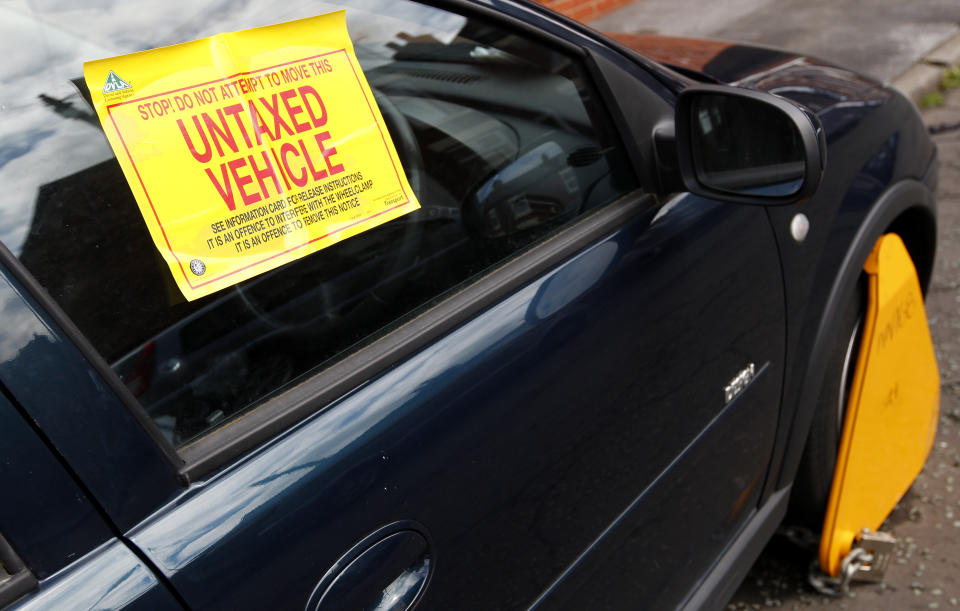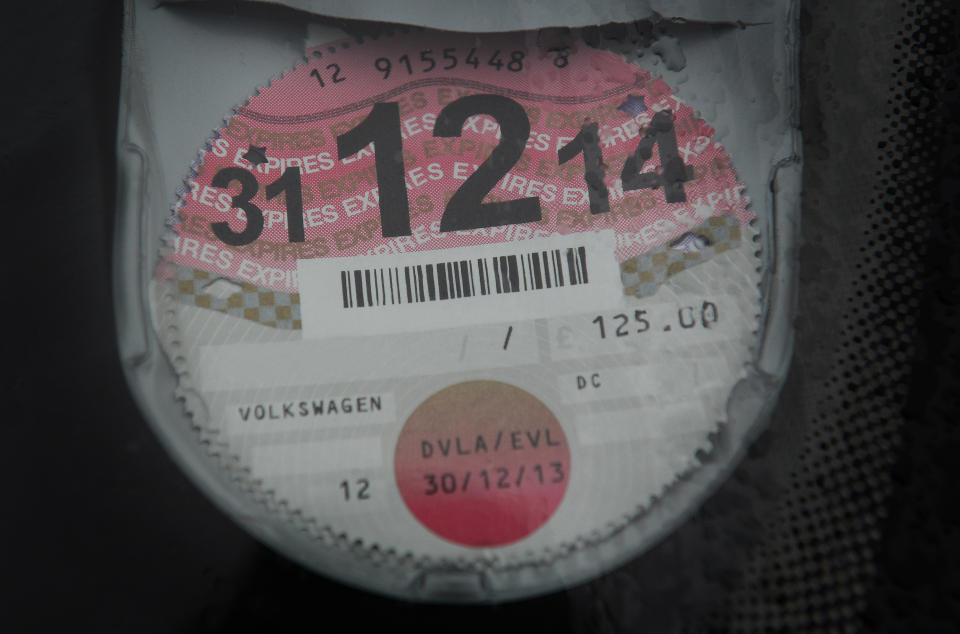Road tax evasion triples since the end of paper discs costing Treasury £107 million

At least 755,000 untaxed vehicles are being driven around on Britain’s roads costing the Treasury more than £100 million a year.
Official figures show the number of motorists failing to tax their vehicles has climbed each year since the old paper tax disc system was scrapped.
Motoring experts believe drivers are more willing to chance their arm to try to dodge Vehicle Excise Duty, leaving a big hole in the coffers.
MORE: A no-deal Brexit ‘could see Aston Martin stop car production’
Latest statistics from the Department for Transport show that the government potentially lost out on £107m from 755,000 unlicensed vehicles last year.
Some 1.8% of vehicles in the UK were untaxed in 2017, compared with 1.4% in 2015 and 0.6% in 2013, the year before the paper tax disc was abolished.

When the DfT announced it was ending paper discs, it said it would save at least £10m a year on administration costs as everything moved online.
“The principle of abolishing the tax disc to introduce greater efficiencies has, so far, evidently failed,” said RAC public affairs manager Nicholas Lyes.
“It appears that having a visual reminder was an effective way to prompt drivers into renewing their car tax – arguably more drivers are now prepared to try their luck and see if they can get away with not paying any vehicle tax at all, or are simply forgetting to tax their vehicle when they are due to.”
A third of untaxed vehicles were those that changed hands – an indication that many drivers are unaware that tax does not carry over when ownership changes.
‘Arguably more drivers are now prepared to try their luck and see if they can get away with not paying any vehicle tax at all’
The number of people prepared to drive a vehicle that has been declared as being off the road has also risen dramatically.
In 2015, just 1% of cars with a current Statutory Off Road Notification (SORN) were being driven on the road. That figure rose to 12% this year.
The latest statistics are based on a roadside survey by the DfT in June 2017, with vehicles being observed at 256 locations around the UK.
MORE: Shake-up could see UK motorists face a 2,475% increase to tax that new green hybrid
Cars and vans were by far the most common car tax evaders, accounting for 79% of untaxed vehicles.
Just over half had been untaxed for two months or less, perhaps suggesting some drivers had simply forgotten to renew the vehicle tax.
The highest levels of evasion were in the West Midlands (2.1% of vehicles) and the North West of England (2%).
The East of England had the lowest rate at 0.8%, with all other areas ranging between 1.6% and 1.8%.
The paper tax disc dated to 1921 but George Osborne, chancellor in 2014 when the change came in, said advances in technology such as number plate recognition, roadside cameras and an electronic register meant it was obsolete.
MORE: Drivers face £17bn loss as value of ‘dirty diesel’ cars predicted to fall amid selling glut
A new VED regime was introduced in April presenting drivers with a baffling array of tariffs, depending on the type of new vehicle they own.
What you pay in the first year of ownership is linked to whether your car or van is electric, a hybrid, petrol or diesel, how old it is, how much it cost and what CO2 emissions rating it has.
There’s a different level of tax for second-hand vehicles registered before April 2017.

 Yahoo Finance
Yahoo Finance 
